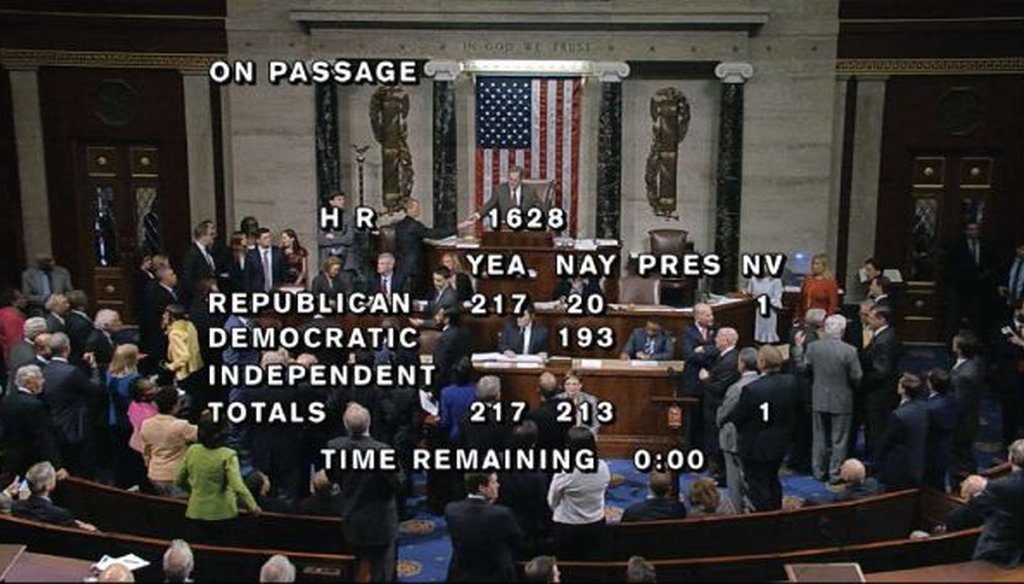Stand up for the facts!
Our only agenda is to publish the truth so you can be an informed participant in democracy.
We need your help.
I would like to contribute
Passage of House bill revives effort to supplant Obamacare

The final vote on the Republicans health care bill is displayed over a feed of the House floor on May 4, 2017. (House Television via AP)
Just six weeks after House Republicans pulled a bill to substantially overhaul the the nation's health care system, they successfully -- if narrowly -- passed a revised version of the measure.
On May 4, 2017, the House passed a the bill by a 217-213 margin.
Republican leaders adjusted the bill following negotiations with both the conservative and moderate wings of the party.
The revised bill would do several things.
It would end subsidies provided to people who buy health insurance on the Affordable Care Act's online marketplaces, replacing them instead with tax credits. It would repeal several taxes imposed under the ACA that primarily hit high-income taxpayers. It would allow states to obtain waivers to some requirements of the Affordable Care Act, including the "essential health benefits" provision that requires maternity care or mental health services. And it would curb further expansion of Medicaid that had been allowed under the Affordable Care Act, as well as eventually capping Medicaid expenditures in ways that would effectively end its status as an entitlement.
According to the Congressional Budget Office, the original version of the bill would have increased the number of uninsured people by 24 million by 2026. The changes made before passage might change that number, but the specific impact awaits a new score by CBO, which is expected in the coming days.
The bill now moves to the Senate, where it faces an even bigger challenge than it did in the House. If the bill is deemed to require 60 Senate votes for passage -- as many experts expect it will be -- then it may stumble in its present form, since its provisions may not pass muster with a range of moderate Democrats and Republicans whose votes would be needed for passage.
For now, though, Trump's push to pass legislation that would supplant the Affordable Care Act has sprung back to life. We rate it In the Works.
Our Sources
Washington Post, "House Republicans narrowly pass controversial bill to revise Affordable Care Act, claiming fulfillment of a major campaign promise," May 4, 2017
PolitiFact, "PolitiFact's guide to the GOP amendment to health care bill," April 28, 2017
PolitiFact, "Did Paul Ryan flip-flop on how to pass a big health care bill?" May 4, 2017
